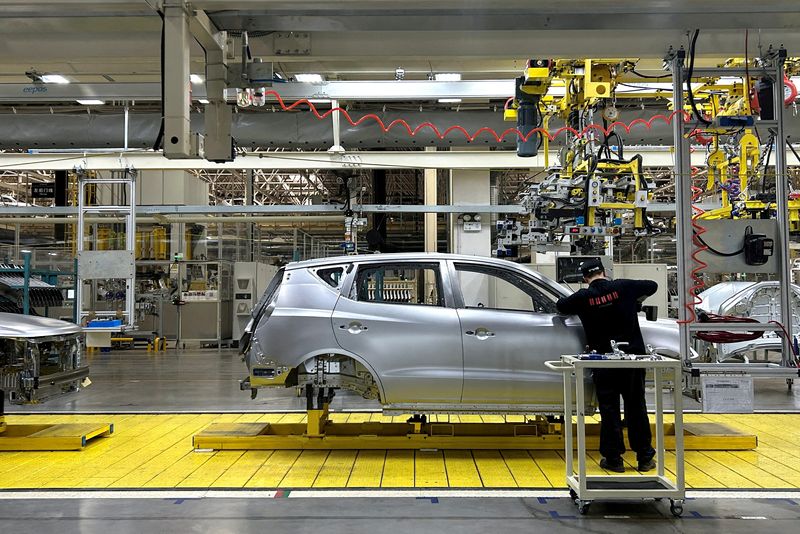China warns carmakers of risks in building plants overseas, sources say
2024.09.12 07:42
SHANGHAI (Reuters) – China’s commerce ministry has warned the country’s carmakers of the risks of making auto-related investments overseas at a recent meeting, said two people briefed about the matter, as they seek global expansion to counter slowing growth in their home market.
At a meeting held in early July, the ministry told local carmakers not to invest in India, citing a directive from the central government, “strongly advised” against investing in Russia and Turkey, and used a more gentle tone to highlight risks in building factories in Europe and Thailand, one of the people said.
It also encouraged carmakers to use overseas factories for final vehicle assembly with knock-down components exported from China to mitigate potential risks stemming from geopolitical issues, said the person.
But no advice was given to them to make sure core electric vehicle technologies stay in the country, as first reported by Bloomberg News on Thursday, the two people said.
They declined to be named as they are not authorized to speak to the media.
The Ministry of Commerce didn’t immediately respond to a faxed query for comment.
Ties between China and India have been strained since their militaries clashed on their disputed Himalayan border in 2020, prompting New Delhi to tighten scrutiny of Chinese investments and halt major projects.
China’s state-owned SAIC Motor Corp Ltd has been struggling with its investments in India for years. It said in April the company would be bringing in Indian investors to create a more favourable operating environment for its MG brand in the country.
In Russia, Chinese-branded cars have seen their presence growing after western automakers retreated due to sanctions.
Chery is in talks with Russian manufacturers about producing cars in Russian plants, Russia’s state-owned news agency TASS reported in August, citing Vladimir Shmakov, director of Chery’s Russian branch.
Chinese automakers are increasingly looking for overseas expansion, as they grapple with a deepening overcapacity problem due to softening demand in China that has led to a prolonged and brutal price war. Their efforts to boost sales in major auto markets such as Europe and the United States have also met with higher EV tariffs.
As several European countries including Spain and Italy seek to lure investment from Chinese carmakers, companies remain cautious of independently setting up local production there, which requires a large amount of investment and a deep understanding of local laws and culture.

Geely, China’s second-largest automaker by sales, is scouting locations for a plant in Europe but has not committed fully to building up local production, its executives told Reuters in Frankfurt this week.
Others such as Leapmotor (HK:) have chosen to partner with local firms. Leapmotor’s joint venture with Stellantis (NYSE:) started EV production at the Franco-Italian automaker’s Polish plant this year.








